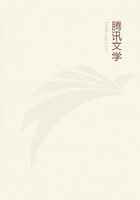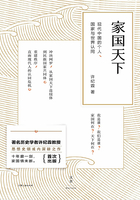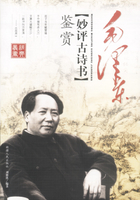The opinion opposed to mysticism in philosophy is sometimes spoken of as RATIONALISM. Rationalism insists that all our beliefs ought ultimately to find for themselves articulate grounds. Such grounds, for rationalism, must consist of four things: (1) definitely statable abstract principles; (2) definite facts of sensation; (3) definite hypotheses based on such facts; and (4) definite inferences logically drawn. Vague impressions of something indefinable have no place in the rationalistic system, which on its positive side is surely a splendid intellectual tendency, for not only are all our philosophies fruits of it, but physical science (amongst other good things) is its result.
Nevertheless, if we look on man's whole mental life as it exists, on the life of men that lies in them apart from their learning and science, and that they inwardly and privately follow, we have to confess that the part of it of which rationalism can give an account is relatively superficial. It is the part that has the prestige undoubtedly, for it has the loquacity, it can challenge you for proofs, and chop logic, and put you down with words. But it will fail to convince or convert you all the same, if your dumb intuitions are opposed to its conclusions. If you have intuitions at all, they come from a deeper level of your nature than the loquacious level which rationalism inhabits. Your whole subconscious life, your impulses, your faiths, your needs, your divinations, have prepared the premises, of which your consciousness now feels the weight of the result; and something in you absolutely KNOWS that that result must be truer than any logic-chopping rationalistic talk, however clever, that may contradict it. This inferiority of the rationalistic level in founding belief is just as manifest when rationalism argues for religion as when it argues against it. That vast literature of proofs of God's existence drawn from the order of nature, which a century ago seemed so overwhelmingly convincing, to-day does little more than gather dust in libraries, for the simple reason that our generation has ceased to believe in the kind of God it argued for. Whatever sort of a being God may be, we KNOW to-day that he is nevermore that mere external inventor of "contrivances" intended to make manifest his "glory" in which our great-grandfathers took such satisfaction, though just how we know this we cannot possibly make clear by words either to others or to ourselves. I defy any of you here fully to account for your persuasion that if a God exist he must be a more cosmic and tragic personage than that Being.
The truth is that in the metaphysical and religious sphere, articulate reasons are cogent for us only when our inarticulate feelings of reality have already been impressed in favor of the same conclusion. Then, indeed, our intuitions and our reason work together, and great world-ruling systems, like that of the Buddhist or of the Catholic philosophy, may grow up. Our impulsive belief is here always what sets up the original body of truth, and our articulately verbalized philosophy is but its showy translation into formulas. The unreasoned and immediate assurance is the deep thing in us, the reasoned argument is but a surface exhibition. Instinct leads, intelligence does but follow. If a person feels the presence of a living God after the fashion shown by my quotations, your critical arguments, be they never so superior, will vainly set themselves to change his faith.
Please observe, however, that I do not yet say that it is BETTER that the subconscious and non-rational should thus hold primacy in the religious realm. I confine myself to simply pointing out that they do so hold it as a matter of fact.
So much for our sense of the reality of the religious objects.
Let me now say a brief word more about the attitudes they characteristically awaken.
We have already agreed that they are SOLEMN; and we have seen reason to think that the most distinctive of them is the sort of joy which may result in extreme cases from absolute self-surrender. The sense of the kind of object to which the surrender is made has much to do with determining the precise complexion of the joy; and the whole phenomenon is more complex than any simple formula allows. In the literature of the subject, sadness and gladness have each been emphasized in turn.















